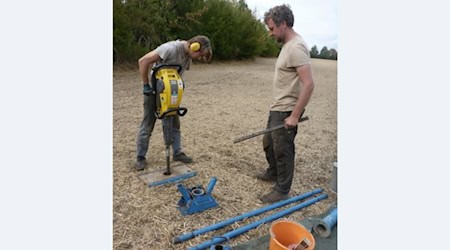Hannah Suppa, editor-in-chief of the Leipziger Volkszeitung, formulated ten well thought-out theses at the summit The Future of German Media in Hanover on May 22, 2025, which are intended to ensure a bright future for regional journalism. She talks about clarity, attitude and new formats for editorial offices organized in publishing houses. However, one central point for the future of regional and local journalism is not mentioned: Platform journalism.
1. We can do more than AI and we have to show it
Artificial intelligence can deliver structured texts, but it doesn't understand nuances, doesn't ask uncomfortable questions and doesn't know local contexts. This remains the strength of journalists on the ground.
2. stop doing things - have the courage to leave gaps
Every day, newsrooms are faced with new tools, topics and tasks. But if you do everything, you water down your core. Hannah Suppa advises having the courage to deliberately not do things.
3. To the point - Smart First instead of a lead desert
What is the core of the issue? If it can't be explained succinctly, it may not be an issue. Clarity, reduction and relevance are the buzzwords of journalism that respects the lifetime of readers.
4. Let go of print. But now for real
Much content is still primarily intended for print - and then "digitized". But it should be the other way around. Suppa advocates the Mary Kondo principle: letting go of what no longer has any real value. The future is digital. Print can be a supplement - but it can no longer set the pace.
5. Less outrage spirals and more classification
The reflex to pick up on every uproar on social media doesn't help anyone. Regional journalism should not be an amplifier, but a filter: classifying instead of turning up the volume, questioning instead of parroting. Not every slip-up is a crisis. First check, then report and maintain proportionality.
6. Get to know your region and know your region
Relevance comes from proximity and proximity requires knowledge. If you only operate from the newsroom, you lose touch with people. However, those who listen, learn and take an interest in local contexts remain credible. Journalism is not a one-way means of communication. It thrives on dialog with people.
7. Be experts, even on a local level
Depth instead of breadth: Suppa calls for specialization, even in the regional sphere. Instead of generalists with half-knowledge, we need reporters who are really well versed in their topics. Madsack has themed reporters for this purpose, a model with a future that should also set a precedent in smaller publishers.
8. We offer a solution, not just the problem
Whoever points out grievances must also be able to suggest solutions. Constructive journalism does not mean whitewashing, but developing ideas together with experts. If you only stare at the crisis, you block the view of change. Journalism can also provide impetus.
9. Courage to use other formats, strategically and for specific target groups
Podcasts, newsletters and live formats. This variety of formats is not an end in itself, but the answer to the target group's changing usage habits. It is important that formats fit the content and the region.
10. Get out to the people, be present, listen
Journalism begins outside on the marketplace, in the club, at events. Suppa's appeal: Go where the people are. Talk to them. Listen to them. Only those who have real contact can set real topics. Editorial teams need less screen time and more time to talk.
But what is still missing? Platform journalism as a model for the future
As clever and comprehensive as Suppa's theses are, one crucial point is missing. An idea that is not evolutionary, but almost revolutionary - a journalistic ecosystem beyond traditional publishers.
Portals such as DieSachsen.de already show how journalists can be visible, journalistically effective and economically successful without a publisher behind them. They build on existing technical infrastructures, use centralized reach and combine advertising revenue with models such as micro-subscriptions.
The idea of platform journalism decouples journalistic talent from the entrepreneurial complexity of publishing houses. It can thus give a new home to many who have lost it due to economic constraints.
Platform journalism is not competing against publishing houses, however. It is a model that does not work instead of publishers, but rather complements them when we think about the future of regional journalism.










